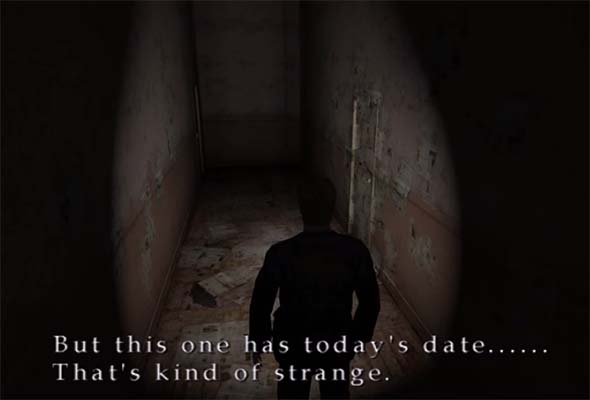
In the comments of a recent post about Silent Hill 2's Otherworld, I had a discussion with a reader about the time period in which the Silent Hill games take place. This is actually an interesting and difficult topic, so I thought that I would dedicate a post specifically to it.
First and foremost, let's remind ourselves of when the games were released:
| Game title | Original release |
 | Silent Hill | January 1999 |
 | Silent Hill 2 | September 2001 |
 | Silent Hill 3 | May 2003 |
 | Silent Hill 4: the Room | September 2004 |
UPDATE 1 January 2020:
A recent tweet from Masahiro Ito claimed that Silent Hill 2 was set in the "late 70's or early 80's", which would make my estimates about 10 later than Masahiro Ito understood the setting to be. If we take evidence in the first Silent Hill game at face value, this would mean that Silent Hill 2 would have to take place prior to the events of Silent Hill, since Silent Hill can take place no earlier than 1987.
It is also possible that Ito's comment is referring to the aesthetics of the game (in keeping with many of the game's film and literary influences), and not necessarily to its actual timeline. It isn't that I don't trust Ito's memory or his authority, but Team Silent went to great pains to conceal the exact date of the games (as we'll discuss in the following post), so it seems that they wanted the years in which the games take place to be ambiguous to the players -- which kind of makes this entire exercise moot.
Contemporary fiction
It is very important to note that no specific dates ever appear in any of the Silent Hill games that were developed by Konami's internal Team Silent studio. If dates are provided, they are either only the month and day (and not the year), or they are time periods relative to the events of the game (such as referring to the "events of 17 years ago" in Silent Hill 3), or it is just the year of an historical event in the past (such as the document about the sinking of the Little Baroness). Even documents that you would expect to have dates (such as newspapers, journals, diaries, patient reports, and police records) are intentionally left dateless (or at least ambiguous).
In Silent Hill 2, there is a point in which James finds newspapers scattered around a hallway. Upon examining the floor or walls, James comments that the newspapers have today's date. This would have been a perfect opportunity for the developers to provide a specific date for the game, if they wanted to. They could have had James read the date on the paper to the player, or the paper itself (with its date) could have been made clearly visible. The developers didn't do this; they left it completely ambiguous.

James notes that these newspapers have today's date, but doesn't tell us what the date is.
The developers went out of their way to not provide any specific dates for the games. Why would they do this? Typically, works of fiction that are not set in particular time period are written to be contemporary. Unless otherwise specified, most works of fiction should be assumed to take place now with respect to the consumption of the work by its audience, regardless of when "now" happens to be. if it's not contemporary to consumption, then it's usually contemporary to creation. This is usually pretty obvious if the work contains detailed descriptions of locations, technologies, and events that can be easily dated.
If we look at the original Silent Hill game in a vacuum, then the game provides no internal indication that it takes place at any specific time period. Players in 1999 probably had no reason to believe that the game took place in any year other than 1999. The same is true for Silent Hill 2, 3, and 4: if looked at in a vacuum, they can all be considered to take place in the same year that they were released. And if you didn't even know the year that the game was released, there's very little within the games to indicate that they take place at any time other than now.
However, this assumption falls apart because there is an absolute time difference of seventeen years between the events of the first game and the events of the third game, even though the difference in time between releases of the games was only four years. So we can't assume that each game takes place in the year of its release. At least one game has to be shifted on the timeline. So which game (or games) should be assumed to have taken place when?
[More]